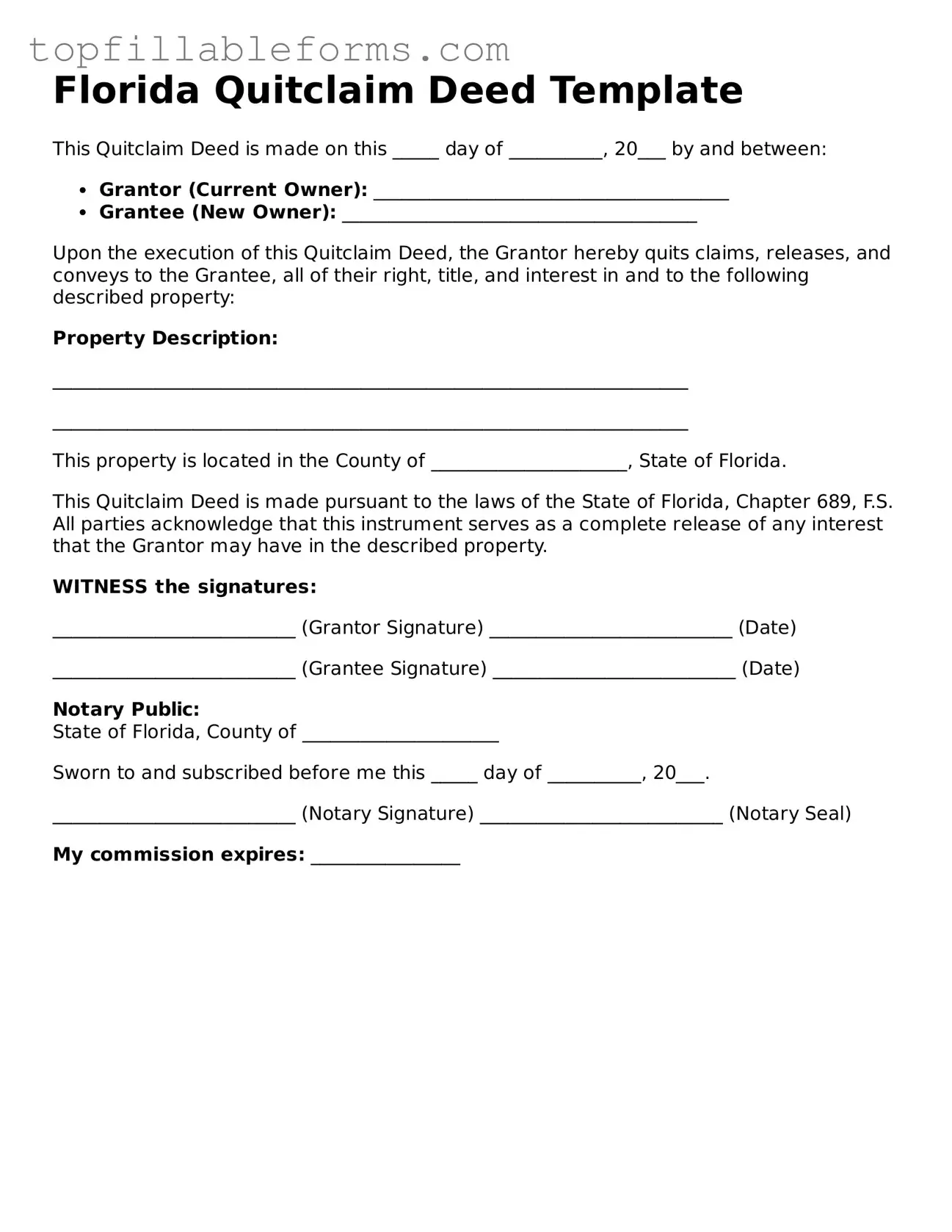Attorney-Verified Quitclaim Deed Template for Florida
A Florida Quitclaim Deed is a legal document used to transfer ownership of real estate from one party to another without guaranteeing the title. This form serves as a straightforward way to convey property rights, often utilized in situations such as family transfers or clearing up title issues. Understanding its implications can help ensure a smooth transition of property ownership.
Open Quitclaim Deed Editor Here

Attorney-Verified Quitclaim Deed Template for Florida
Open Quitclaim Deed Editor Here
Finish the form now and be done
Finish your Quitclaim Deed online by editing, saving, and downloading fast.
Open Quitclaim Deed Editor Here
or
▼ PDF File
